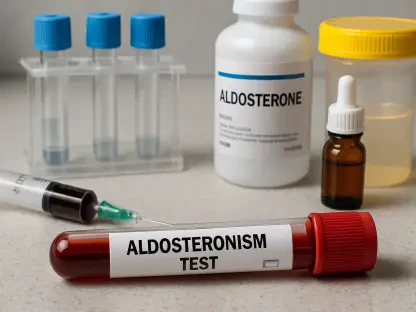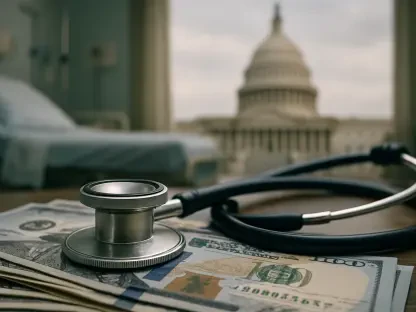James Maitland is an expert in pharmaceutical litigation and regulatory affairs, with a specific focus on how Pharmacy Benefit Managers (PBMs) influence the U.S. prescription drug market. Today, he shares his insights into the recent decision by Andrew Ferguson to rejoin the FTC’s lawsuit against major PBMs and how this move impacts the ongoing litigation. Maitland also discusses the broader implications for healthcare costs and market dynamics.
Could you explain why the FTC decided to pause the litigation against CVS’ Caremark, Cigna’s Express Scripts, and UnitedHealth’s Optum Rx?
The litigation was paused because the FTC didn’t have enough commissioners to proceed with the case after President Trump fired two Democratic commissioners. This left the agency shorthanded and unable to move forward effectively.
What led to your initial recusal from the PBM case?
I initially recused myself because I had previously advised Virginia in a related case against PBMs during my tenure as the state’s solicitor general. This involvement created a potential conflict of interest that necessitated my recusal.
How did President Trump’s firing of two Democratic FTC commissioners impact the case?
The firing of Alvaro Bedoya and Rebecca Slaughter effectively stalled the case because it left the FTC without the necessary quorum to proceed. This interruption was significant and caused a temporary halt in the proceedings.
How might the FTC’s case against the “Big Three” PBMs affect the U.S. prescription drug market?
If the FTC’s case is successful, it could lead to substantial changes in how PBMs operate, particularly in their negotiating practices with drugmakers. This might help lower drug prices and increase transparency in the market, ultimately benefiting consumers.
Why did you decide to end your recusal and rejoin the PBM lawsuit now?
Given the absence of the Democratic commissioners, it became clear that my return was essential to keep the case moving forward. Balancing effectiveness with ethical integrity, I decided it was necessary to rejoin to ensure the case’s continuation.
What role did your past advice to Virginia on a similar PBM case play in your decision-making process?
My past advice to Virginia was a factor in my initial recusal, as it posed a potential conflict of interest. However, with the current circumstances, the need to move the case forward outweighed the initial concerns, especially with guidance from ethics lawyers.
How do you respond to criticism that Trump’s firing of Alvaro Bedoya and Rebecca Slaughter was illegal?
This is a complex legal issue still being contested in court. From my perspective, the key focus is on maintaining the integrity of the FTC’s processes and decisions, regardless of the political dynamics at play.
What steps did you take to ensure your return to the case would not have ethical implications?
I consulted extensively with ethics lawyers to ensure that my return would not breach ethical guidelines. Their advice was fundamental in making the decision to rejoin the case.
Can you explain the FTC’s general counsel’s decision to pause the case after the firing of the two commissioners?
The general counsel made the decision to pause the case due to the lack of a sufficient number of commissioners to proceed. This was a necessary step to maintain order and legality within the commission’s operations.
What are the next steps in the litigation process now that you have rejoined the case?
Now that I have rejoined, the next step is to resume the investigation and prepare for the evidentiary hearing scheduled for February 2026. We’ll continue gathering evidence and building our case.
How might the timeframe for the case be affected by your decision to return?
My decision to return ensures that the case will proceed without further delays, adhering to the previously set timelines, including the evidentiary hearing in February 2026.
How will the FTC address the allegations that PBMs are artificially driving up the price of insulin?
We will gather and present comprehensive evidence showing how PBM practices have led to higher insulin prices. This includes detailed analyses of their negotiating tactics with drug manufacturers.
What evidence does the FTC have to support the accusation that Caremark, Express Scripts, and Optum Rx are driving up insulin prices?
The FTC has collected significant evidence indicating that these PBMs employ tactics that lead to higher prices for insulin. This includes contractual agreements and correspondence with drug manufacturers that demonstrate their influence on pricing.
How are the accused PBMs responding to the FTC’s accusations?
The PBMs have denied the accusations, stating that their practices are standard industry operations and claiming they work to reduce costs rather than increase them.
What would be the potential consequences for the PBMs if the FTC wins the case?
If the FTC wins, the PBMs could face significant regulatory changes, financial penalties, and possibly be required to alter their business practices to improve transparency and competition within the market.
Can you discuss the significance of PBMs controlling around 80% of the U.S. prescription drug market?
The control of such a large market share by the “Big Three” PBMs can stifle competition and lead to higher prices for consumers. Their dominant position allows them considerable influence over drug pricing and availability.
How does the FTC plan to proceed with the evidentiary hearing set for February 2026?
We plan to proceed by continuing to gather evidence, securing expert testimonies, and preparing comprehensive arguments to present at the hearing. Our focus will be on making a strong, evidence-based case.
What kind of impact do you anticipate this case having on consumers who rely on insulin?
If successful, the case could lead to lower insulin prices and increased transparency in the pricing process, significantly benefiting consumers who rely on this essential medication.
How are ethics lawyers involved in your decision to rejoin the case?
Ethics lawyers played a key role in reviewing the potential conflicts of interest and ensuring that my return would adhere to all ethical guidelines. Their counsel was crucial in my decision-making process.
What can be done to ensure the stability and continuity of FTC leadership to avoid such disruptions in the future?
To ensure stability, it’s essential to establish clear, bipartisan guidelines for the appointment and tenure of commissioners. This could help prevent political influences from disrupting the FTC’s critical work.
Do you have any advice for our readers?
Stay informed about the role of PBMs in healthcare and advocate for transparency and fair practices in the prescription drug market. Your awareness and engagement can drive significant change.









